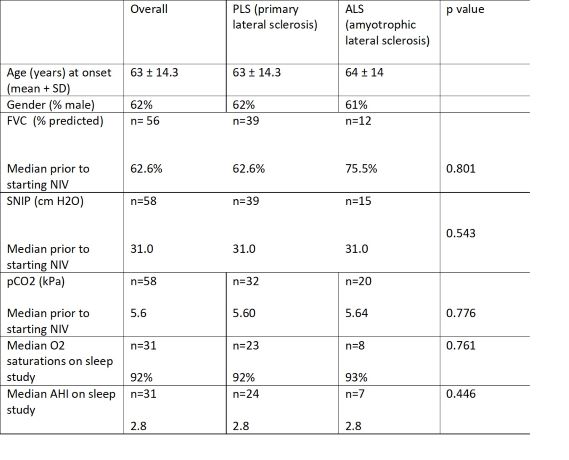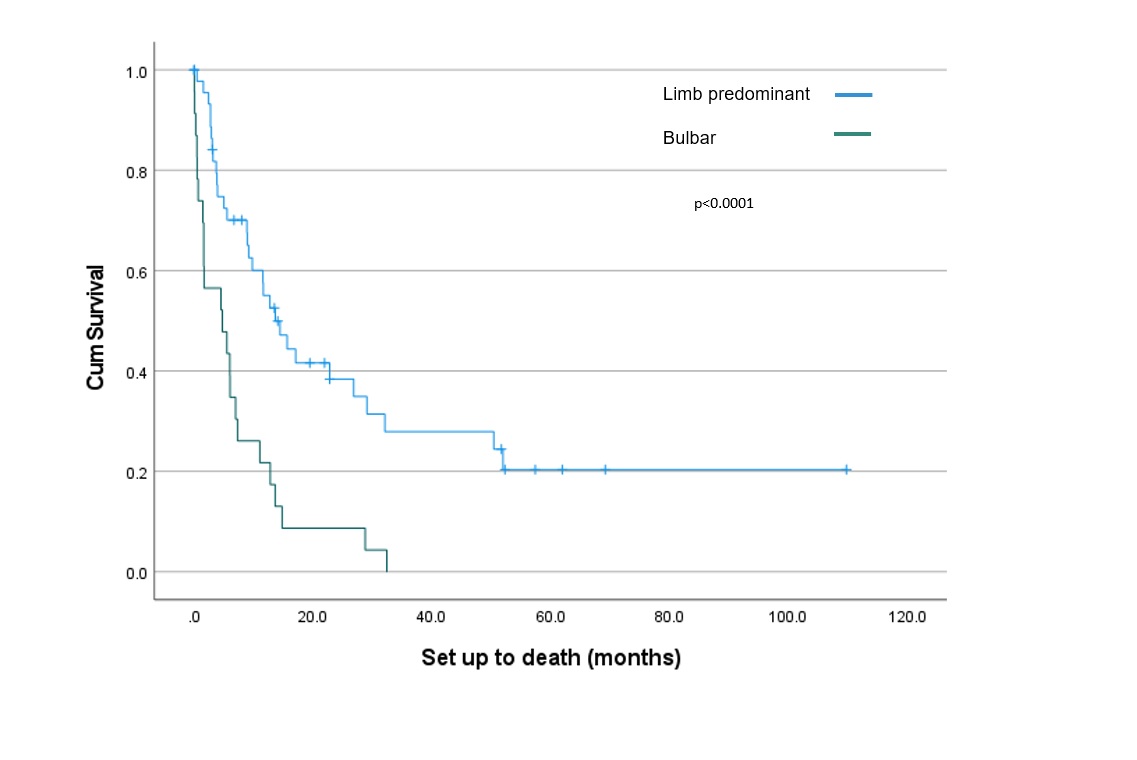Abstract
Domiciliary non-invasive ventilation (DNIV) can improve survival and prevent respiratory function decline in patients with motor neurone disease (MND). A retrospective cohort analysis of all patients using DNIV with confirmed MND between 2014-2022 at a tertiary hospital was conducted.Factors influencing survival in patients established on treatment were examined.Parameters analysed included disease subtype, dates of diagnosis, NIV set-up and death, lung function prior to DNIV initiation, sleep study results and NIV compliance at 3 months.
77 patients were included;7 were excluded from subgroup analysis due to lack of subtype diagnosis. Demographics were as follows:

Median survival was better in PLS patients compared to ALS, from diagnosis to death (31 months vs 13.5 months, p<0.001) and NIV set up to death (13.7 months vs 4.7 months, p<0.001) respectively.
Multi-variate analysis showed key factors for survival included PLSsubtype,(p=0.019),FVC prior to initiation(p<0.001) and DNIV compliance at 3 months(p<0.033).
These data demonstrate that DNIV compliance at 3 months and FVC can be considered as key targets for optimising survival.
